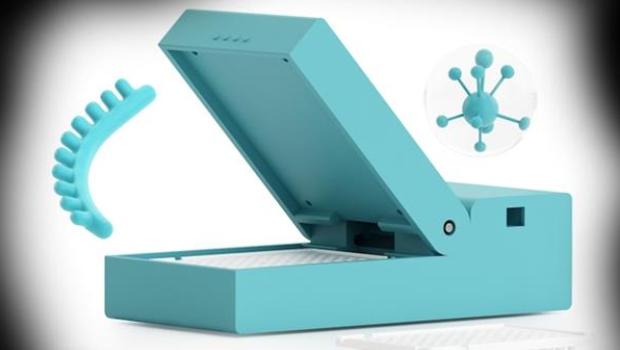Cancer is becoming common in the current world, and few individuals have not lost a friend or family member or relative to the sickness. Luckily, therapeutic specialists are contending back energetically, and even 3D printing innovation has a part to play. For a medicinal startup, Miroculus has been dealing with an exceptionally exact 3D printed blood test gadget called the Miriam, which can distinguish early stage growth utilizing simply a little blood test.
Furthermore, as the tumor is best battled as ahead of schedule as would be prudent, this sort of open diagnostics apparatus could turn into a genuine saver.
The group from Miroculus is very much mindful of the risks of the tumor, and has been working for quite a long time to introduce a financially savvy answer for early-organize malignancy location. “Having lost friends and family to malignancy extraordinarily contributed in the choice to attempt and handle this issue,” CEO Alejandro Tocigl uncovered. The startup itself was established in 2013, through Singularity University’s Global Solutions Program. A mid 3D printed variant (then essentially called the ‘Miroculus’) showcased in 2014.
While the 2014 Miroculus model as of now demonstrated guarantee, the Miriam is developing into something a great deal more intense. “[It enables] client intercession and robotizes the complete test from test stacking to test outcomes reporting. The center innovation is computerized microfluidics and an exclusive microRNA location technique bundled in a moderate instrument with expendable cartridges,” Tocigl clarified in a meeting. “The objective of Miroculus continues as before: a straightforward blood test to identify sickness at the atomic level.”
As Tocigl uncovered, they have been vigorously expanding on their innovation since 2014 and are utilizing advanced microfluidics standards to transform the Miriam into a ‘lab on a chip’. Their first target is gastric or stomach disease and they as of late worked with the National Institute of Health on a multi-focus clinical study in three nations with 650 patients – with the objective of distinguishing stomach malignancy microRNA marks.
For those microRNA marks could assume an enormous part in malignancy recognition, as they can serve as biomarkers in patients. Different studies in ovarian and lung disease have as of now demonstrated results in this field, and Miroculus effectively fabricated the open source AI device Loom to investigate these microRNA marks. “We would like to see Loom controlling scientists and clinicians around the world through the microRNA information database,” Tocigl clarified. While not all experts trust that growth can be recognized at an atomic level through a blood test, the 3D printed Miriam gadget could demonstrate them off-base.
